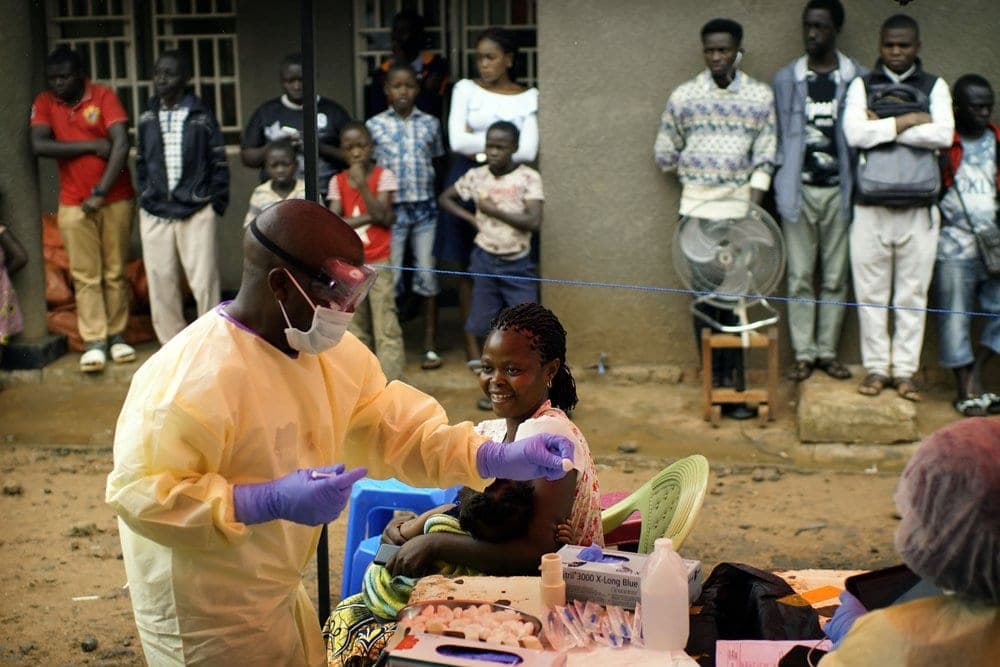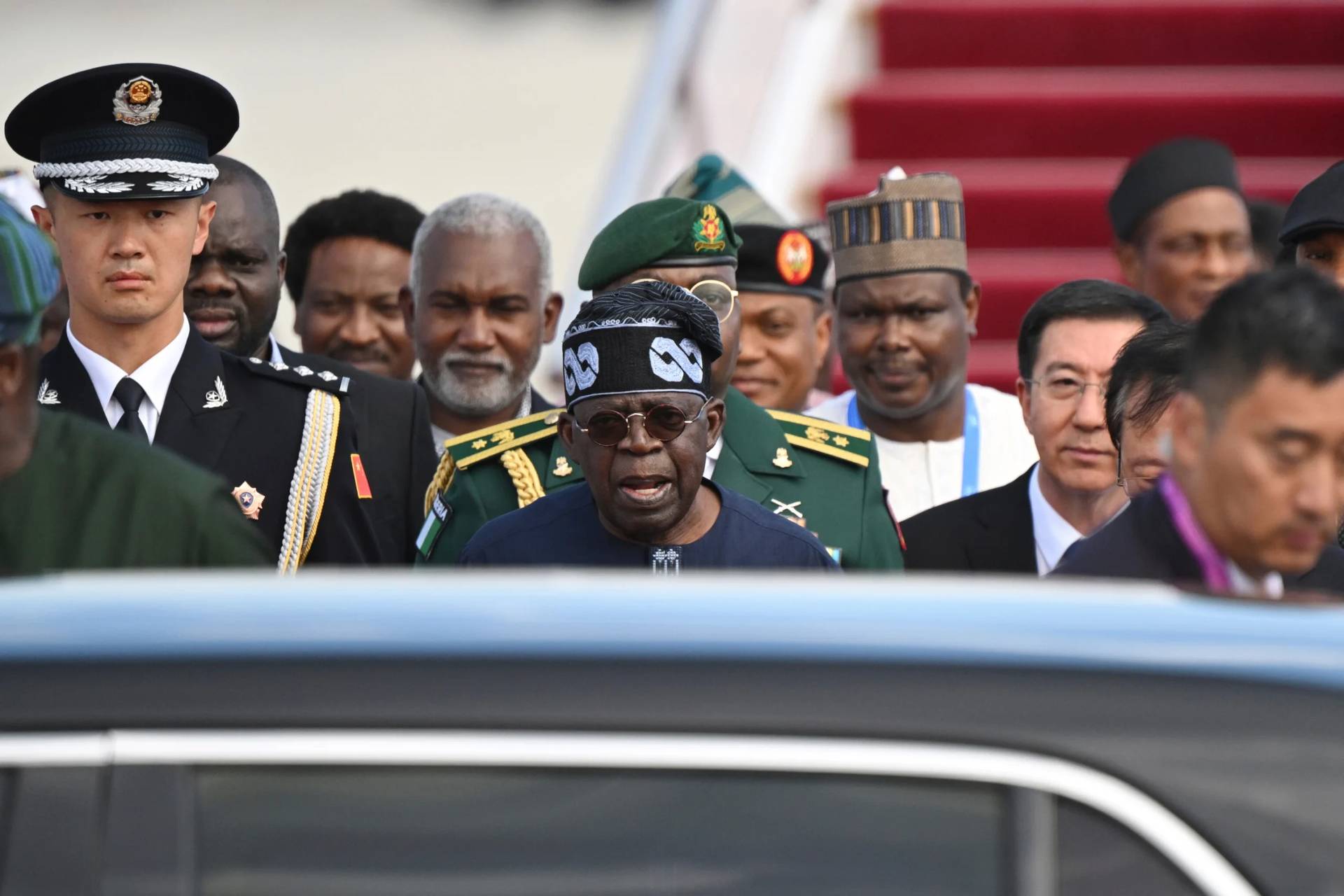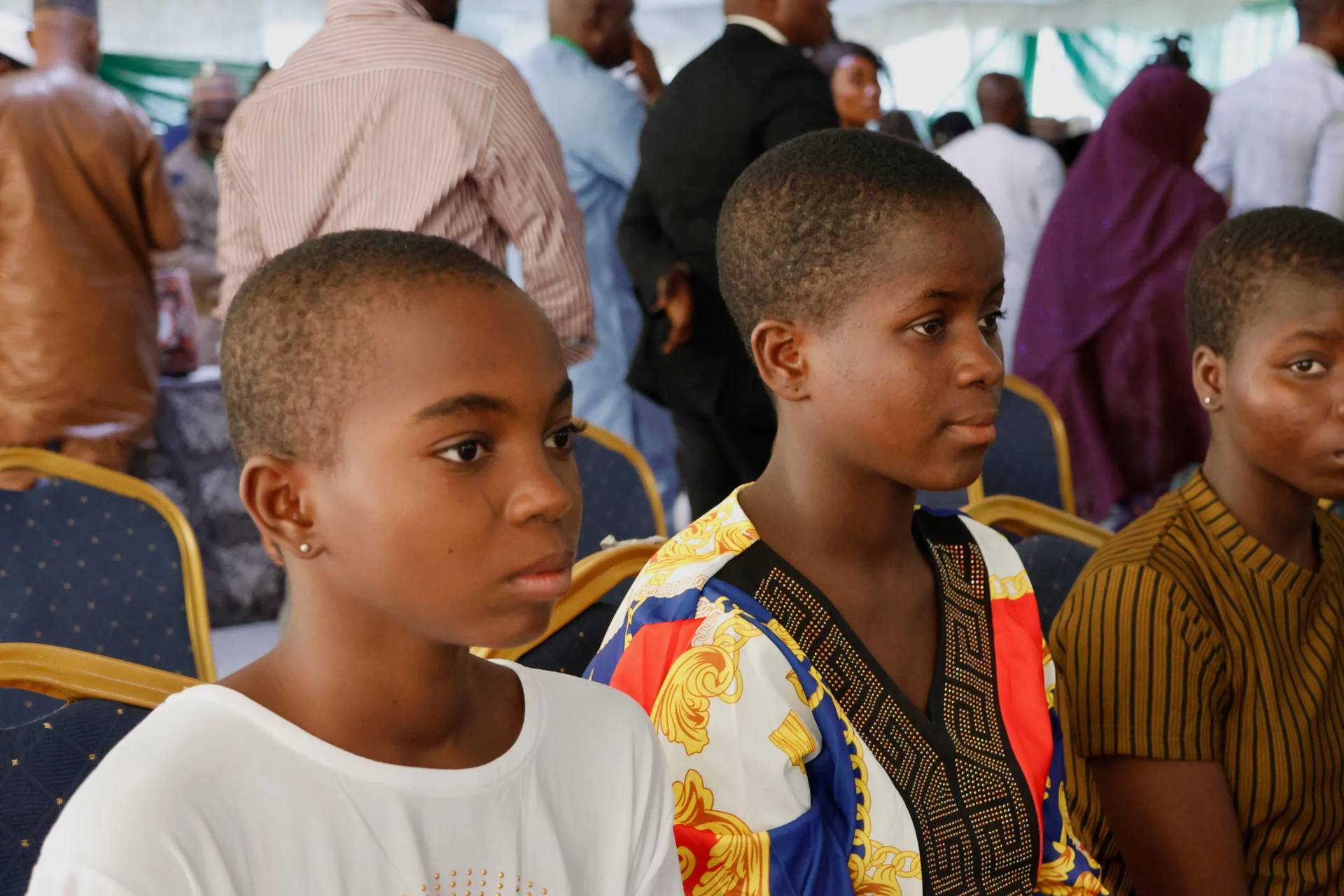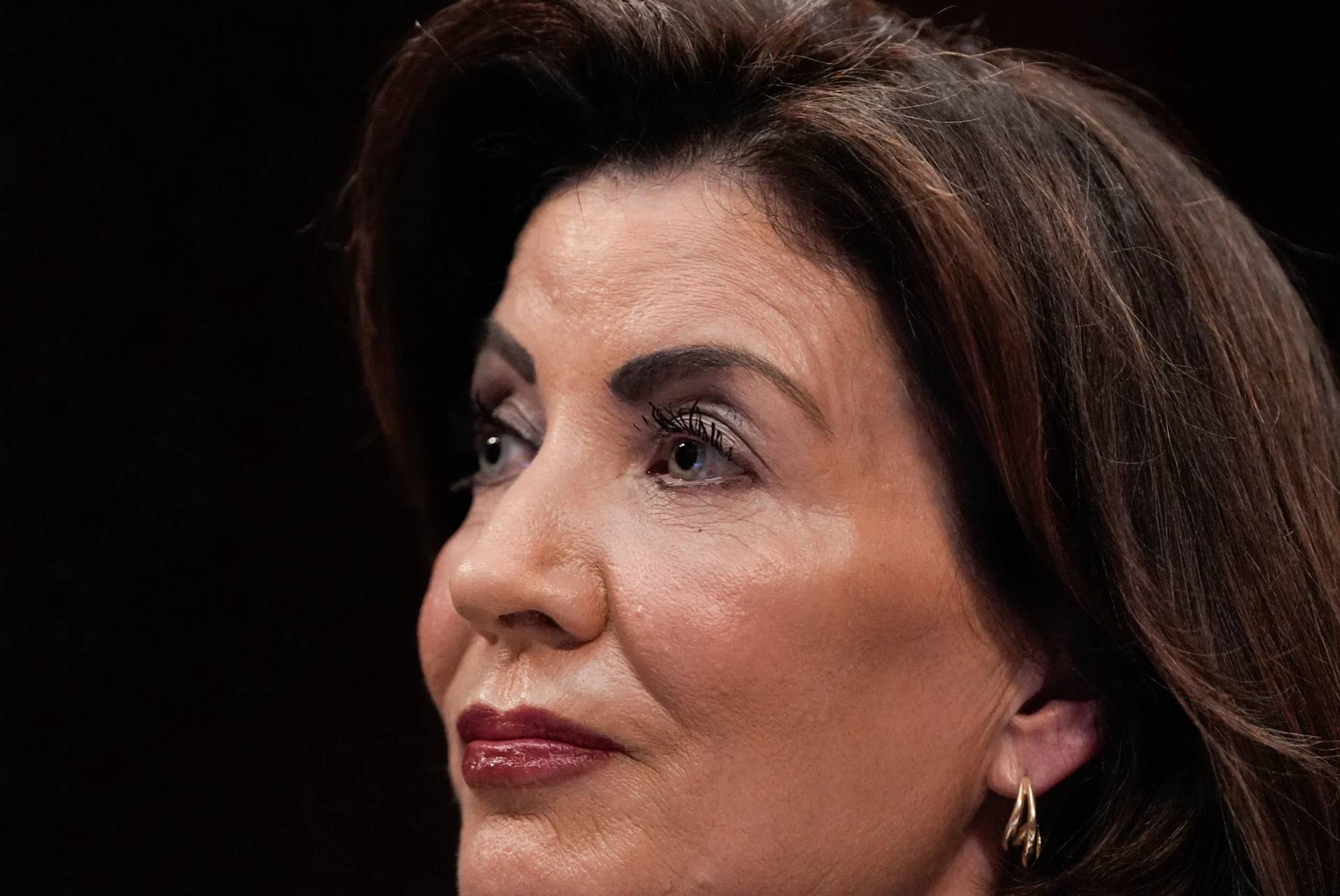YAOUNDÉ, Cameroon – People in the Democratic Republic of Congo are “being cautious” after the World Health Organization declared the Ebola crisis a public health emergency of “international concern.”
“There are hand-washing points across Goma, and people are now being cautious in the way they greet each other,” said Bernard Kateta Balibuno, the CAFOD Country Representative in DRC.
CAFOD is the overseas development agency of the Catholic Bishops’ Conference of England and Wales, similar to the U.S. bishops’ Catholic Relief Services.
The WHO made its declaration on July 17, nearly a year after the outbreak began in the African country. Médecins Sans Frontières (MSF) has reported there have been over 2,500 cases of the disease, with cases doubling between April and June – at least 1,600 have died. This makes it the second largest ever outbreak of the disease – a hemorrhagic fever which can have a 90 percent mortality rate – after the West Africa outbreak that started five years ago and killed over 11,000 people.
“The risk of Ebola spread in DRC and the region remains very high, and the risk of spread outside the region remains low,” said Dr. Tedros Adhanom Ghebreyesus, director-general of WHO.
Ghebreyesus said it was time for the international community “to stand in solidarity with the people of DRC.”
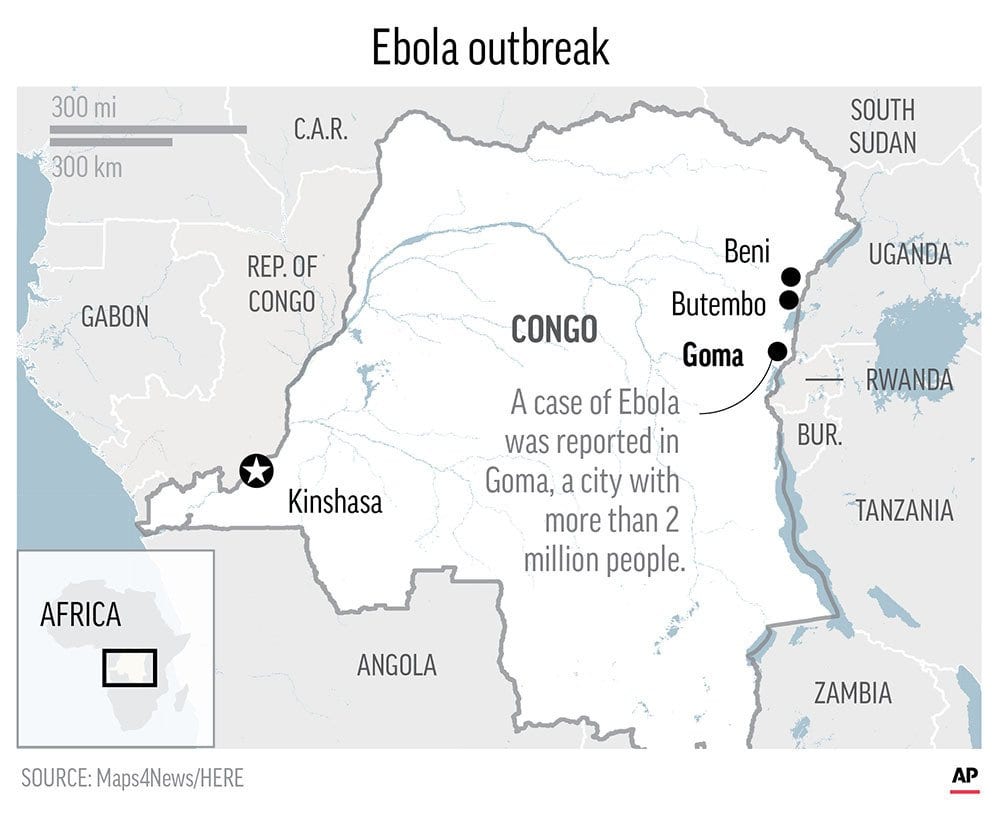
Last week, a pastor in Goma died from the disease. Goma is a city of almost 2 million people that borders Rwanda and is a hub of international travel, heightening concern that the virus could spread beyond Congo’s borders.
During a visit to the country last week, CAFOD Director Christine Allen welcomed the WHO declaration, noting that “a massive effort” by the international community and the Congolese people will be required to halt the spread of what she described as an “appalling disease.”
RELATED: Congolese Church leaders urge international help to contain Ebola
“What is going to be critical is building trust within communities. The work of local aid agencies will be essential. We must make sure that they receive the funding needed to respond in their communities, where they are dispelling myths and making sure people understand how the Ebola virus is transmitted, how it is treated and how to prevent infection,” she said.
Balibuno told Crux there are still “gaps in this city of two million people, as some areas do not have access to water.”
“We know that the Church networks are closer to the people, and their messages are listened to and accepted. They can reach every corner of this city and are ready to go where others might fear to go,” the CAFOD country representative said.
He said CAFOD will continue to work in Beni and Butembo, the epicenter of the Ebola outbreak, and will look also to work with the Church in Goma, to scale up a health and hygiene promotion campaign.
“To stop the further spread of Ebola, it is vital that we learn lessons from the past, and ensure that funding doesn’t just land with the big humanitarian organizations responding, but also make sure that local aid agencies are funded, they are the ones able to reach communities with culturally specific communications,” Balibuno said.
Already, CAFOD has pledged over $100,000 to Caritas Beni and Caritas Butembo to enable them to scale up an awareness-raising campaign in 28 communities with the aim of breaking down the obstacles to people accessing health services, as well as raising awareness of how to approach people exhibiting Ebola symptoms.
An atmosphere of suspicion and denial has surrounded the country as the Ebola outbreak has spread, but the Catholic bishops have been trying to educate people about the disease.
Over half of the country’s 90 million people are Catholic, and the bishops are highly respected among the people.
“The bishops of the dioceses affected by the Ebola virus – Butembo-Beni, Bunia, Wamba, and Kisangani – have made fervent appeals to Catholic faithful and the general public, for the strict application of preventive measures,” Emmanuel Bofoe of Caritas DRC told Crux in June.
“They have also mobilized all Church structures to get involved in efforts to counter the spread of the epidemic. But the epidemic continues to spread,” he said.
Bofoe said while rising insecurity in the affected areas that has led to the destruction of some treatment centers has aided the spread of the virus, superstitious beliefs driven by some traditional doctors have also constituted a stumbling block to the fight against the virus.
RELATED: Caritas seeks to help educate about risks as Ebola crosses from Congo to Uganda
“Some traditional doctors say they can treat Ebola through simple incantations or with the use of products drawn from traditional pharmacopeia. This practice lies at the core of the tendency by patients to arrive late in treatment centers, 6 days or more after the first signs of the disease appear, and this leads to deaths in communities which trigger massive contamination. In effect, relatives of the dead, ignoring the safety precautions in the case of Ebola, end up manipulating the corpses and contaminating themselves as a result. And so, they become a further source of contamination,” the Caritas representative said.
But Balibuno said he believes that continued sensitization will eventually change habits, and the deadly but preventable virus, would be contained.
Crux is dedicated to smart, wired and independent reporting on the Vatican and worldwide Catholic Church. That kind of reporting doesn’t come cheap, and we need your support. You can help Crux by giving a small amount monthly, or with a onetime gift. Please remember, Crux is a for-profit organization, so contributions are not tax-deductible.
